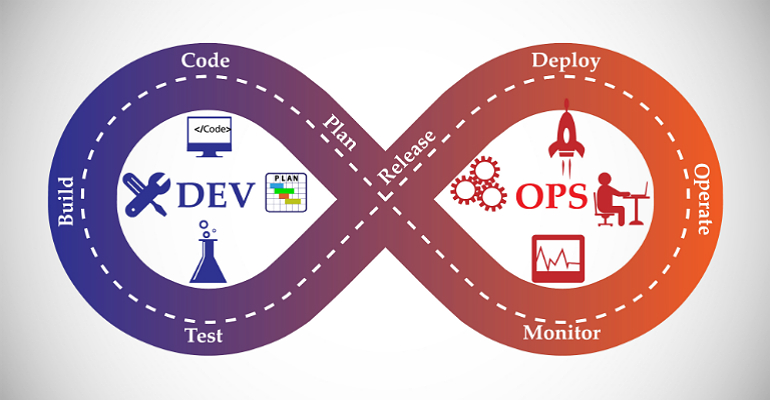The constantly evolving world of technology means that new terms and terminologies keep finding their way into the language of today. For about a decade ago, Agile and Lean were words that were quite unheard of, which currently are literally philosophies that companies swear by and adhere to for their development processes. Similarly, DevOps has been another term that has come into play and garnered popularity as many enterprises began embracing Agile.
As companies changed their way of working, there arose a need for a form of intrinsic collaboration and communication between different product teams. DevOps comes along with a bunch of approaches and techniques that can help establish this flow effectively. It goes without saying that the primary inertia and difficulties of getting it off the ground are valid, but the benefits that follow after that are absolutely worth it. Professionals who have undergone DevOps Foundation training are highly prized in this regard since they have the best idea of executing this plan in its entirety. All in all, the role of a DevOps professional straddles between technical understanding of the product and the business processes of the company.

Here’s how a good training program can be mutually beneficial to the company and yourself.
Quicker completion of features
When companies stick to traditional ways of developing a product, any new feature takes a large amount of time to pass through the gauntlet of multiple processes until it reaches a point where it can be tested and presented to the customer as a functionality.
DevOps helps get rid of the redundancies along this path. By bringing in the principles of Agile, development, testing and optimization tend to work in a near parallel fashion. Each process is carried out continuously in an iterative fashion, which leads to quicker delivery of features to the final product. There is also the added opportunity to delight the customer with a new feature on a regular basis.
Reaping the benefits of stable processes
The clash of technological constraints with the business demands leads to an environment that involves processes which are unstable. Things tend to go haywire and both development and management end up being haphazard, ultimately affecting the product at large and the overall business altogether.
Contrast that with the inclusion of DevOps principles that bring guidelines to every process in the right manner. Once the environment achieves stability, you are rid of the continuous cycle of picking out bugs and maintaining the product, since your deliveries consistently reach a high benchmark. This frees up mental space and time slots to brainstorm about the future of the product and take it to the next level.
Faster problem resolution and recovery
An initial introduction to DevOps might make it seem like the end goal is perfection in matters of product development and business processes. But that’s far from it. When it comes to product development, there are always going to be problems and associated risks, as well as inevitable failures that might affect the customers at large. There’s no way to escape it at all. But there’s always a way to be prepared for it and respond to it better.
DevOps ensures in optimizing exactly this. It helps in establishing safeguards and paths that help in resolving problems as quickly as possible. This could involve recognizing them beforehand or putting gateways in place to avoid problems from creeping in at further stages. While faster development may at times result in functional failures leading to feature rollbacks, DevOps helps in cutting down this recovery time and returns things back to normalcy as soon as possible.
Breakdown of tasks into bite-sized morsels
One of the core reasons why many bugs and problems seem to escape the eyes of developers and testers alike is due to the magnitude of features and defects that exist on the plate at any given point of time. Rolling out a massive upgrade in a single go makes it difficult to discover any minor issues that could lead to a domino effect, as well as fix problems that have been discovered without disturbing the entire feature.
The major responsibility of a DevOps professional is to bring an organization to this process by using the principles of Agile. Larger tasks are broken down into numerous small tasks which can be distributed across the team and built individually. Not only does this speed up development time, but it also improves defect identification by a large amount. The end result? A better and improved product that performs without any hitches.
Many companies are beginning to understand the ideology behind a DevOps Foundation course and are sending their employees for training programs or looking for professionals who are already certified. Be one of them today and get yourself a lucrative career option like never before.